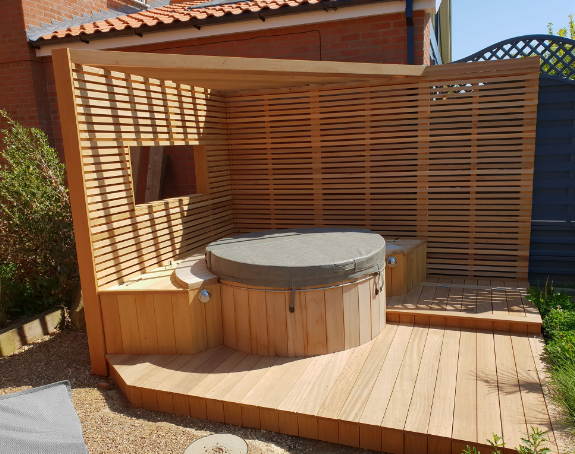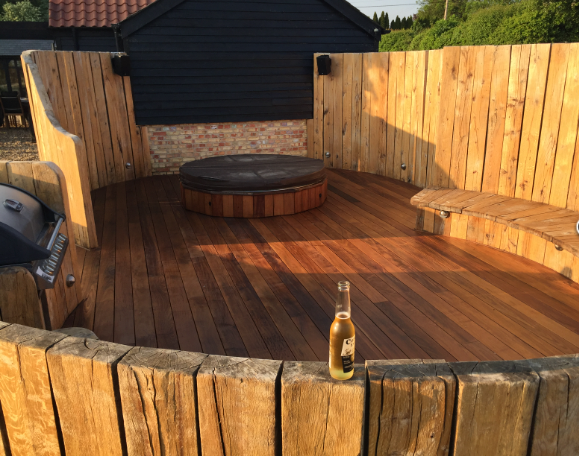When it comes to building a deck, selecting the right wood decking boards is crucial. The choice of wood not only impacts the aesthetics of your deck but also its durability, maintenance requirements, and overall longevity. With a plethora of options available in the market, it can be overwhelming to make the right decision. In this guide, we’ll delve into the various types of wood decking boards available and help you determine which one is best suited for your needs.
Table of Contents
Understanding Wood Types
Hardwood vs. Softwood
One of the primary distinctions among wood decking boards is whether they are hardwood or softwood. Hardwoods, such as Ipe and Mahogany, are known for their density and durability, making them resistant to rot, decay, and insect infestation. Softwoods, on the other hand, like Cedar and Pressure-treated Pine, are more affordable and easier to work with but may require more maintenance over time.
Natural vs. Composite
In addition to natural wood options, homeowners also have the choice of composite decking boards. Composite boards are made from a blend of wood fibers and recycled plastic, offering the look of wood with minimal maintenance requirements. While they may come at a higher initial cost, composite boards are known for their longevity and resistance to moisture, rot, and insects.

Factors to Consider
Durability
When selecting wood decking boards, durability is a key consideration. Factors such as wood species, moisture resistance, and treatment methods can affect the longevity of your deck. Hardwoods tend to be more durable and resistant to wear and tear, making them ideal for high-traffic areas and climates with harsh weather conditions.
Maintenance
Another crucial factor to consider is the level of maintenance required to keep your deck looking its best. While hardwoods generally require less maintenance due to their natural resistance to decay and insects, they may still benefit from periodic sealing or staining to maintain their appearance. Softwoods and composite boards may require more frequent maintenance, including cleaning and sealing, to prevent mold, mildew, and fading.
Aesthetics
The visual appeal of your deck is also important in selecting the right wood decking boards. Consider the color, grain pattern, and texture of the wood to ensure it complements your home’s architecture and landscaping. Hardwoods often feature rich, natural hues and distinctive grain patterns, while softwoods offer a more rustic aesthetic. Composite boards come in a variety of colors and textures, mimicking the look of real wood without the maintenance requirements.
Popular Wood Decking Options
Ipe
Ipe is a popular choice for homeowners seeking a durable and low-maintenance decking option. Known for its rich reddish-brown hue and superior hardness, Ipe is resistant to rot, decay, insects, and fire. While it comes at a higher price point, its longevity and minimal maintenance requirements make it a worthwhile investment for many homeowners.
Cedar
Cedar is a softwood option that offers natural beauty and affordability. Its light reddish-brown color and aromatic scent add charm to any outdoor space. While Cedar is naturally resistant to decay and insects, it may require regular sealing to maintain its appearance and durability over time.
Pressure-Treated Pine
Pressure-treated pine is one of the most widely used decking materials due to its affordability and availability. By subjecting the wood to chemical treatments, pressure-treated pine becomes resistant to rot, decay, and insect infestation. However, it may require regular maintenance to prevent warping, splitting, and discoloration.
Composite Decking
Composite decking boards are gaining popularity for their durability, low maintenance, and eco-friendly properties. Available in a variety of colors and textures, composite boards offer the look of wood without the drawbacks of rot, decay, and insects. While they may come at a higher initial cost, composite boards require minimal upkeep, making them a cost-effective choice in the long run.
Conclusion
Selecting the best wood decking boards for your deck involves considering factors such as durability, maintenance, aesthetics, and budget. Whether you opt for hardwoods like Ipe and Mahogany, softwoods like Cedar and pressure-treated pine, or composite decking boards, make sure to choose a material that suits your needs and enhances the beauty and functionality of your outdoor space.

